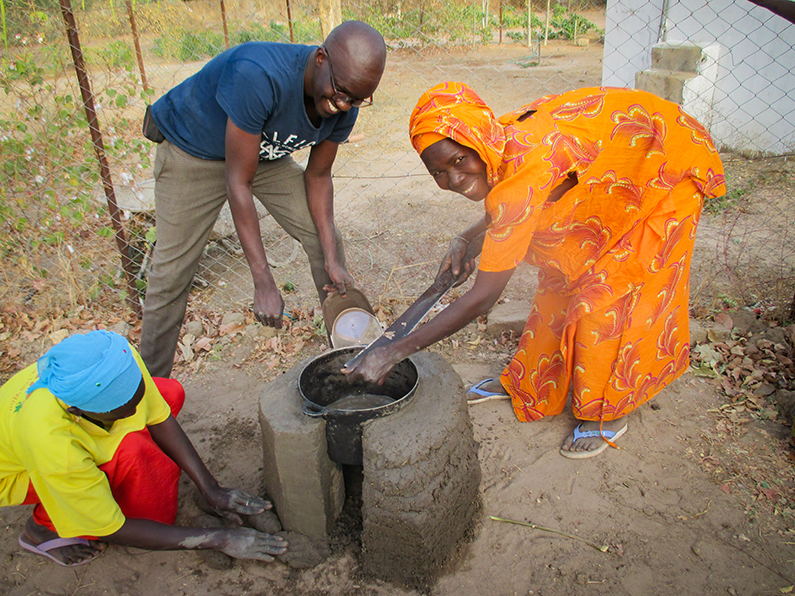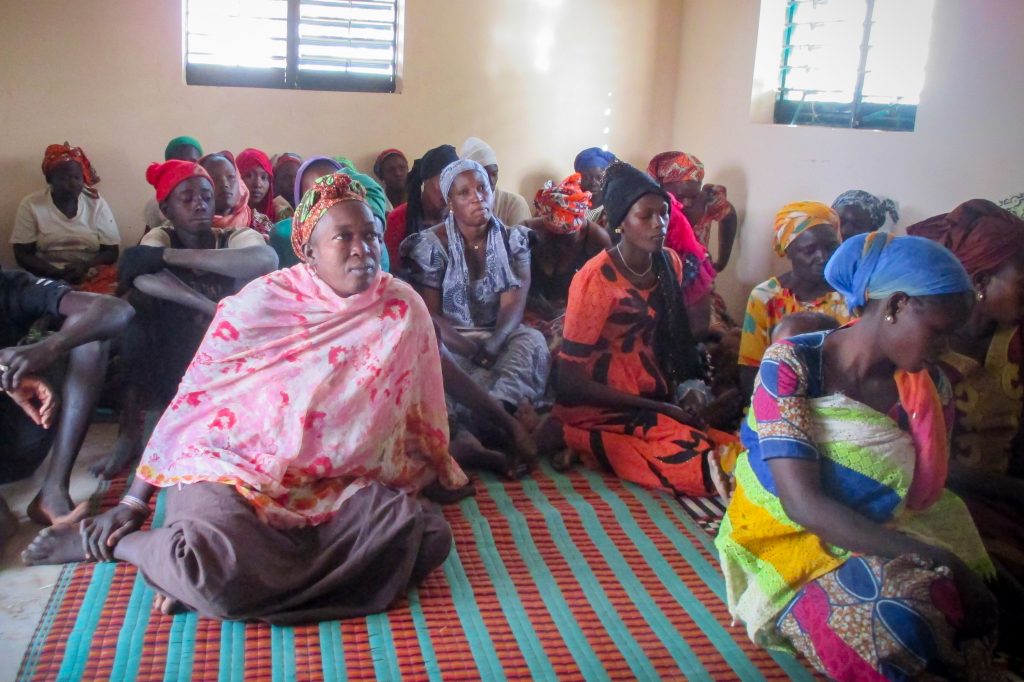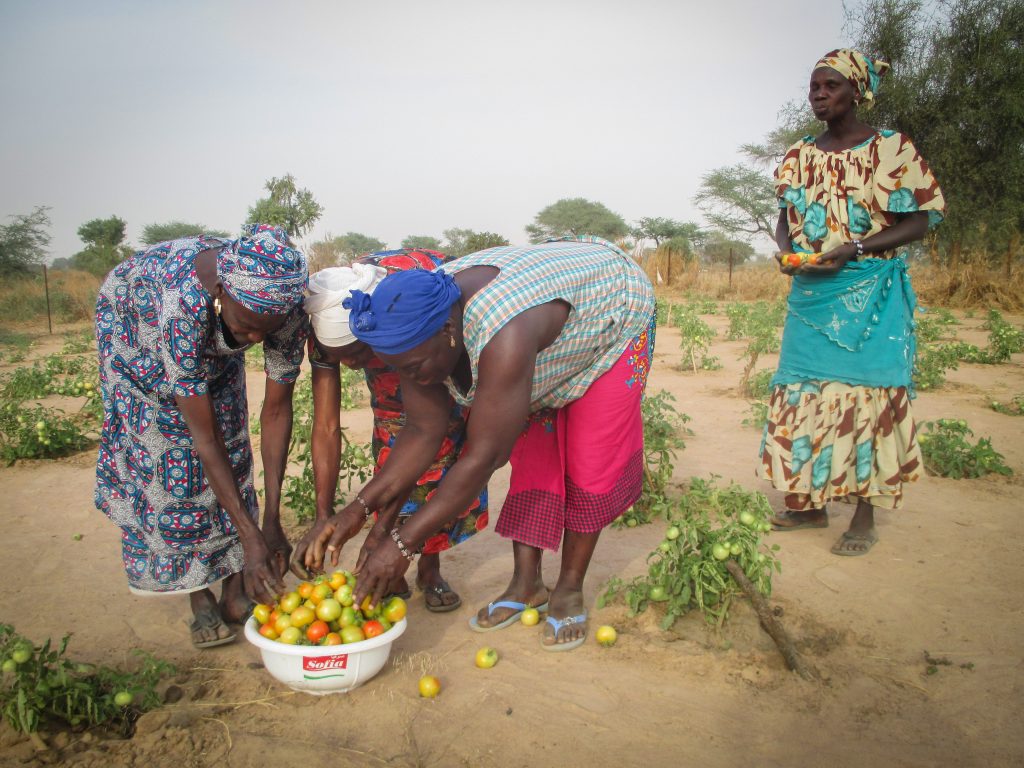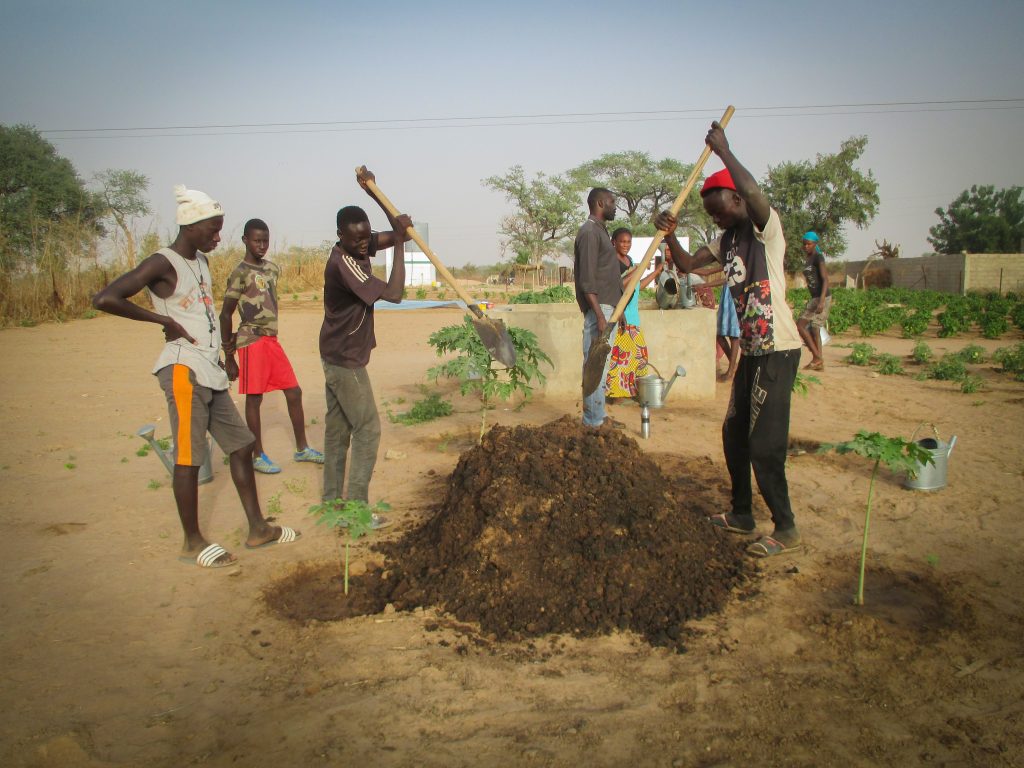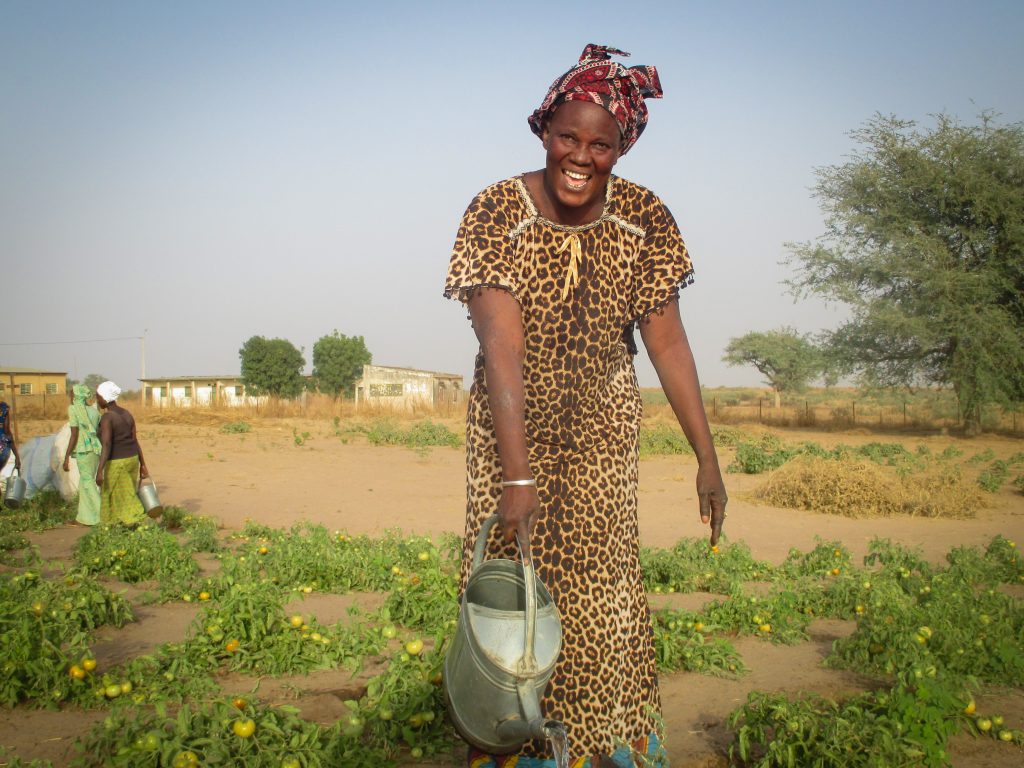Above: CREATE! field technicians run periodic refresher training sessions across all 13 partner villages to remind women how to construct and repair their improved cookstoves, as seen here in Walo.
January was a busy month for CREATE!’s field technicians in Senegal, as it often is this time of year. With winter’s cooler temperatures and the rainy season behind us, our technicians have been hard at work. They’ve been running training workshops in our partner villages, monitoring the gardens, and helping organize cooperative groups. Check out these latest photos from Senegal to see what they’ve been up to!
In Mboss, one of our newer partner villages, women gathered last month to learn how to run their own Voluntary Savings and Lending Associations (VSLAs). These community-based savings and lending programs are designed to empower women to manage their own finances and increase their financial literacy within cooperative groups.
Women in Keur Daouda continued to bring in a healthy harvest of tomatoes this growing season. Tomatoes are a popular vegetable grown in the village gardens. You can find tomato in many of the traditional dishes that women cook for their families. This includes mafe (meat in peanut sauce), ceebu jen (fish with rice and vegetables), boulettes de poisson (fried fish in tomato sauce), and salatu niebe (black-eyed pea salad).
In many parts of Senegal, men leave their villages to seek employment in the cities. This partly due to the impacts of climate change reducing the viability of their agricultural opportunities and resources. In many of CREATE!’s partner villages however, we have seen a trend of men returning to their home communities to work. Because of the flourishing gardens, renewable energy projects, abundant water, and income generation programs, new opportunities are now available locally.. Thus enabling men to make a living while helping their own communities.
Women in Back Samba Dior have been happy with their vegetable harvest recently! Last month, they harvested 138kg (over 300lbs!) of tomatoes, as well as 38kg (84lbs) of eggplant, and 18kg (about 40lbs) of jaxatu, or African Eggplant.

